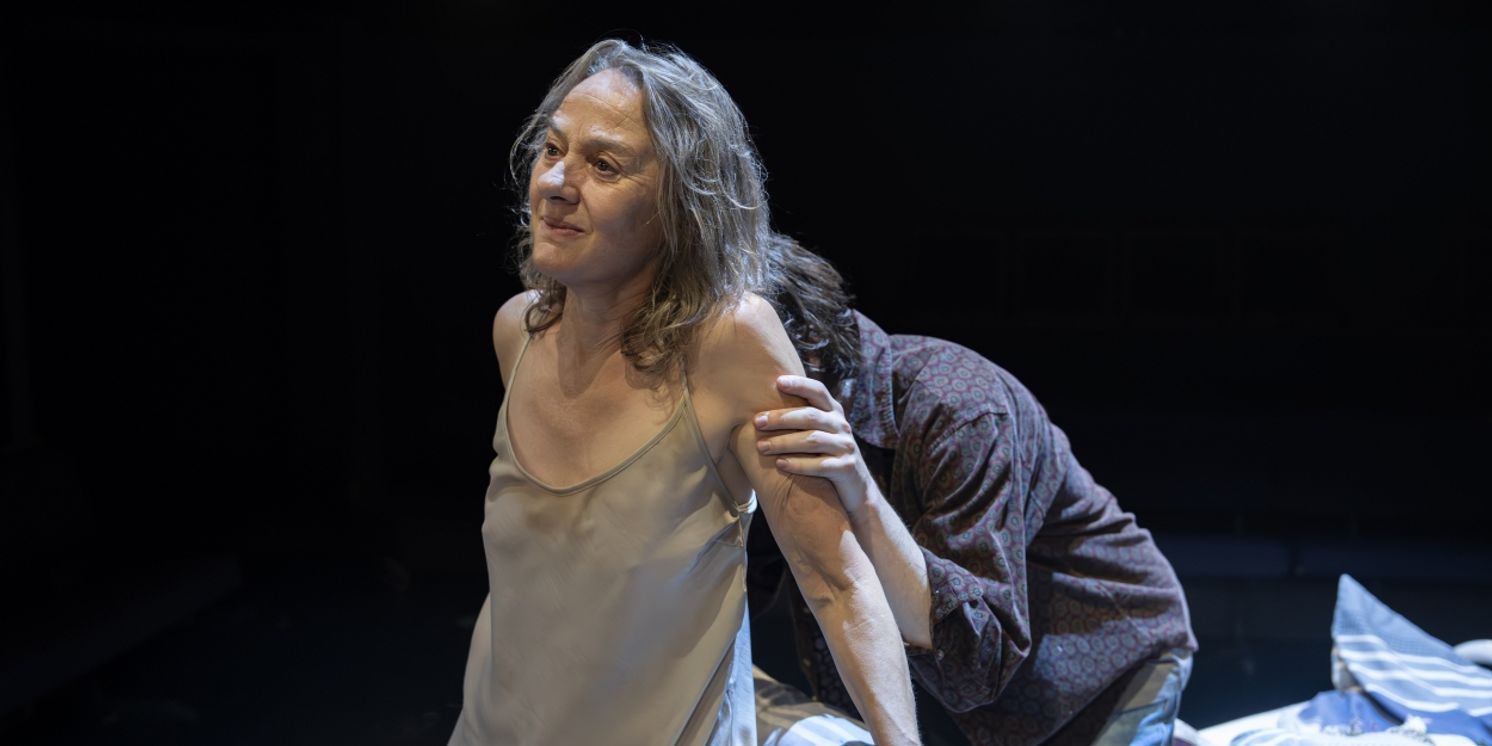Review: THAT FACE, Orange Tree Theatre
An absorbing and intensely observed revival

![]() Content warning: themes of alcoholism, violence and coercive behaviour are referenced.
Content warning: themes of alcoholism, violence and coercive behaviour are referenced.
It is hard to believe that Polly Stenham was not even 20 when she wrote this This Face; a dark and unnerving examination of parent-child relationships where teenagers try to parent immature and utterly self-indulgent parents. After debuting at the Royal Court in 2007, the play went on to win three major awards and is now belatedly revived in a excoriating version, directed by Josh Seymour.
Mia has been sent home from boarding school after participating in an initiation ceremony that goes badly wrong. She returns home to her alcoholic, disinterested mother and ever more unstable brother. Her wealthy father is rushing back from Hong Kong to sort out the mess, but this a family with dysfunction deep in its soul.
Niamh Cusack is very convincing as the intoxicated, vituperative and clearly very damaged Martha. No matter how drunk she becomes, her focus on manipulation of her son is laser-sharp. Cusack puts in a very physical performance; jumping around the stage with large, bounding movements, but she also expresses a huge amount with small glances and gestures.
There is an excellent, if unnerving, chemistry with Kasper Hilton-Hille who plays Henry, the son who has given up school to care for her, but is clearly completely out of his depth with the situation at home. Hilton-Hille makes a rather extraordinary stage debut, desperate and pleading with his mother to change, but also enabling her behaviour. It is a powerful performance of a troubled young man teetering on the edge of what he can cope with. As his father says, he is a "good kid with bad parents".
A similarly strong performance comes from another newcomer, Ruby Stokes, who is full of bravado masking vulnerability as sister Mia. Behind the throwaway comments and sullen attitude is a child who is struggling to find a direction, but has never been shown which way to go by her parents.
Sarita Gabony turns in a sharply snarky execution of the small, but significant role as the monstrous schoolfriend Izzy and Dominic Mafham is emotionally disconnected and pompous as father Hugh, who believes only he can rescue the terrible situation.
Stenham’s script is outstanding in how authentic and believable her dysfunctional characters are, even while we are often imbued with loathing and distaste at their behaviour. Despite the weight of the subject matter, there is also a lot of wry humour even as the family unit disintegrates.
Back in 2007, the focus of the play seemed to be looking at a mother who flirts dangerously close to incest with her son, cultivating a deeply unhealthy and unnatural environment. Today, I think the story looks more like an intense observation of the disintegration of the parent-child bond, coersive control, extreme mental health issues and alcoholism leading to a toxic environment where a family is at breaking point. The programme notes about a dynamic where parent and child roles are reversed called ‘parentification’ are incredibly informative.
That said, although there is no overt suggestion or display of incest, some of the physical contact, looks and dialogue between mother and son are more than enough to bring about distinct unease at the situation. One scene where Martha bites her son on the neck to match a love bite on the other side is both disturbing and convincing.
Stenham, along with Josh Seymour’s intelligent direction, remains restrained in nearly all the right places, which makes the horror of the situation all the more apparent. However, the final scene where Henry stands in strings of pearls and his mother’s nightdress, decrying his useless parents is slightly overblown, albeit heart-breaking.
Eleanor Bull’s design focuses around a rotating, institutional-looking white bed which gradually comes to look like a Tracey Emin study than anything ordered or structured. The disintegration is clear.
That Face runs at the Orange Tree Theatre until 7 October.
Photo Credit: Johan Perrson
Reader Reviews
Videos

